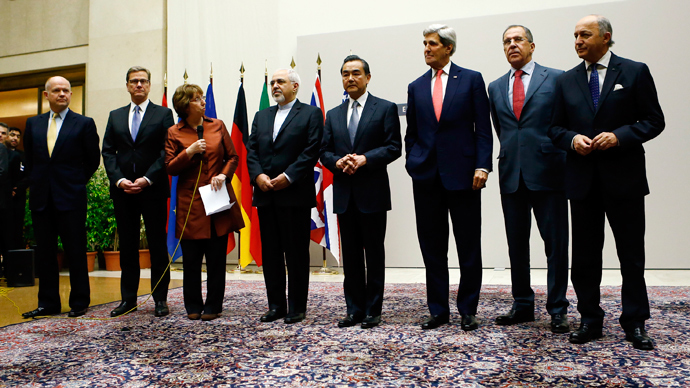
At a recent speech before the American Jewish Congress, Canadian foreign minister John Baird reiterated Canada’s view of Iran as “the biggest threat to global peace”. Citing its poor domestic and international record, the Harper government, in September 2012, decided to suspend diplomatic ties with Iran. Nearly two years since that decision, it is worth reviewing what the implications have been for Canada’s interests abroad.
It is not difficult to understand the Harper government’s position on Iran. Iran’s nuclear program has not only drawn concern from its main adversaries, the U.S. and Israel, but also from all world powers including Russia, China and the EU, which has led to ongoing P5+1 negotiations aimed at limiting Iran’s nuclear weapons capabilities. Iran is believed to be playing a significant destabilizing role in neighbouring Iraq and remains the only regional ally of Syria’s Bashar al-Assad. Iran’s financial and weapons support for Hezbollah and Hamas, both of whom are regarded as terrorist organizations by Canada, the U.S., and the EU, has further contributed to Iran’s international pariah status.
At home, Iran is among the world’s worst human rights abusers. Last year it executed nearly 700 citizens and Iranian human rights organizations reporting the Islamic Republic has already executed about 250 people this year. Before the UN Human Rights Council in March, Special Rapperteur on Iran’s human rights situation Dr. Ahmed Shaheed discussed at length the various ongoing rights violations in the country, including discrimination against religious minorities and political activists, as well as its overall disregard for the civil, political, economic, social and cultural rights of its citizens.
However while the decision to shun ties with Iran is understandable, it begs the question as to whether the decision has advanced Canada’s foreign interests. In his recently released book, How We Lead: Canada in a Century of Change, former Canadian prime minister and foreign minister Joe Clark questioned the Harper government’s decision to disengage with Iran asking “What does Canada gain — what do our friends, including Israel, gain — from shutting down our channels of communication?”
In ceasing communications altogether with Iran, Canada loses its ability to engage with Iran and potentially persuade Iran to pursue policies favourable to Canadian interests. Among Canada’s various interests when it comes to Iran is the desire to enhance regional stability, which includes Iran ceasing to sponsor violence beyond its borders, for Iran to cease its hate speech on Israel, and for Iran to cease developing its nuclear weapons program. Canada would additionally like to see an improvement in Iran’s domestic human rights situation.
A significant downside of cutting ties with Iran is that it undermines Canada’s goal of weakening the Iranian regime and planting the seeds for future domestic reform within Iran that, it is hoped might lead to a more peaceful regime in Tehran. In the absence of economic and military clout, Canada has long punched above its weight in the international arena due to its effective ability to influence outcomes in its favour through co-optation and values promotion, a concept otherwise referred to as ‘soft power’.
As Clark pointed out in his book, at a time when much of the world was opposed to South Africa’s apartheid regime, then Canadian prime minister Brian Mulroney managed to successfully strike a balance between taking a principled stance against apartheid while leaving the channels of dialogue open with the South African government. In the end, Canada’s use of soft power under Mulroney helped contribute to the downfall of South Africa’s apartheid regime. By cutting ties with Iran however, Canada loses its ability to project soft power through diplomacy as a means of helping to reform, weaken, and/or replace the Iranian regime.
Canada risks seeing its international influence diminish as it plays no role in dialogue with an Iranian regime that much of the international community, including some of Canada’s greatest allies, such as the U.S. and EU, are engaging with. Long viewed as an ‘honest broker’, Canada cannot presently broker anything with a regime it refuses to communicate with. In fact, the benefits of direct engagement with Iran continue to be on display before the international community as the P5+1 continues to work directly with the Iranian regime to settle the nuclear issue peacefully. With talks between Iran and the P5+1 set to resume shortly, Canada remains on the sidelines issuing powerful statements while restricting its own ability to influence events on the ground.
The U.S., following decades of animosity with Iran, has chosen to sit down and work out a diplomatic solution with Iran that advances America’s foreign interests. In America’s case, that is ensuring Iran does not successfully develop nuclear weapons capabilities. While engaging with the Iranians is no easy feat, mainly due to the abrasiveness of the Iranian regime, Canada should reconsider its stance on Iran and pursue an engagement policy that advances Canadian interests abroad, and enhances Canada’s international standing.




